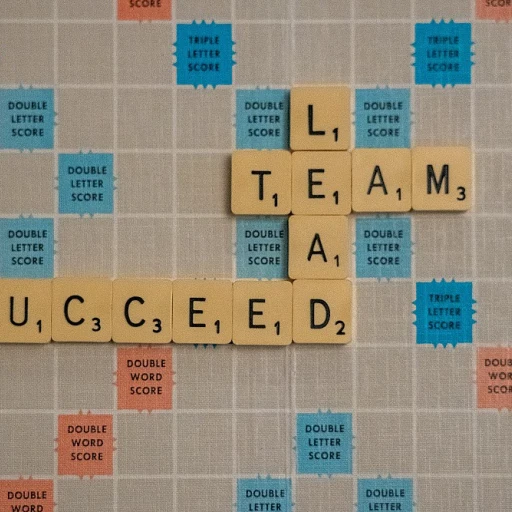
Defining the Procurement Lead Role
Understanding the Dynamics of the Procurement Lead Role
The position of a procurement lead is a pivotal role within any organization looking to efficiently manage its procurement process. This role encompasses a wide range of duties and responsibilities, focusing on the acquisition of goods and services essential for a company's operations. A procurement lead acts as a bridge between suppliers and the organization, ensuring that the supply chain maintains optimal efficiency and cost-effectiveness. A procurement lead's primary responsibilities include sourcing and negotiating with suppliers, managing contracts, and overseeing the procurement process. This involves a strategic approach to purchasing that aligns with the organization's business objectives. It is not only about procurement but also involves an extensive understanding of contract management and a strategic outlook on the supply chain. In this role, procurement managers must possess key skills in management and negotiation. They should be adept at handling complex contracts and understanding the nuances of supplier relationships. A strong procurement manager also exhibits leadership qualities, guiding their team towards achieving procurement goals while optimizing resource utilization. For those interested in pursuing a procurement lead position, a bachelor degree in supply chain management, business, or a related field can be beneficial. Additionally, gaining experience through various procurement or project management roles can provide the necessary skills and industry insights. For a more detailed exploration of the unique responsibilities and potential career growth in procurement, prospective candidates can refer to insights on understanding the role of exit interviews in talent management here. The effectiveness of a procurement lead directly influences how well an organization navigates its supply chain challenges and meets its procurement demands. Their ability to strategize and execute efficient procurement initiatives plays a crucial role in driving organizational success. As businesses continue to evolve, the role of procurement leads will likely adapt, demanding proactive engagement with emerging procurement practices.Key Skills and Competencies
Skills and Competencies for Procurement Success
In the ever-evolving landscape of procurement, the role of a procurement lead demands a dynamic skill set and a robust suite of competencies. These dedicated professionals play a pivotal role in navigating the supply chain, making their skillset crucial to driving company success. First and foremost, effective communication is key. Procurement managers must foster relationships with suppliers, ensure clear negotiation of contracts, and articulate the organization's needs. This skill is essential for successful sourcing and purchasing of goods and services. Moreover, analytical abilities are vital. A procurement professional must analyze market trends, sourcing options, and supplier performance. This involves not only data interpretation but also strategic planning to optimize the procurement process and enhance the value chain. Strategic thinking and project management are integral components of the procurement lead’s duties and responsibilities. The ability to envision long-term business goals while managing the day-to-day operations of the procurement team is essential. This often includes overseeing complex projects, coordinating with cross-functional teams, and ensuring that procurement strategies align with organizational objectives. Another crucial skill is contract management. Mastery over contracts ensures that all terms are met, which mitigates risk and maintains strong supplier relationships. Procurement specialists must be adept at managing contracts to ensure that the procurement process runs smoothly and complies with legal standards. Additionally, experience in supply chain management rounds out the skill set of an effective procurement manager. This encompasses an understanding of the entire supply chain cycle, from sourcing raw materials to delivering finished products and services, ensuring efficiency and cost-effectiveness. A bachelor degree in a related field often provides a solid foundation for acquiring these skills. It's also worth noting the importance of continuous learning and adapting to new procurement technologies and methodologies. The dynamic nature of procurement requires professionals to stay updated with the latest trends and innovations to maintain a competitive edge. For more insights into the development of these skills and their impact on talent management, consider exploring our piece on training needs assessment. This resource offers valuable perspectives on how to tailor training programs for procurement roles, ensuring professionals are equipped with the skills necessary to excel in their jobs.Talent Management in Procurement
The Essence of Effective Talent Management in Procurement
In the intricate world of procurement, talent management plays a pivotal role in ensuring an organization’s success. The procurement lead needs to effectively manage a pool of skilled professionals who can adeptly handle various procurement tasks, from sourcing products and services to overseeing complex contract management processes. A well-rounded procurement manager is integral to talent management in this context. The skills required for such a role often span a wide range of competencies, making it essential for procurement leads to identify, nurture, and develop these skills within their teams. A manager’s job in procurement is not just about managing supply chains but also about fostering an environment where team members can thrive. To excel in supply chain management, procurement managers rely on a blend of strategic sourcing, contract management, and project management skills. These competencies allow them to streamline the procurement process, negotiate advantageous contracts with suppliers, and ensure the organization’s supply of goods and services is uninterrupted. Hence, the procurement team’s performance is directly tied to the managers’ ability to lead and manage talent effectively. Organizations need managers who understand the nuances of procurement and can quickly adapt to evolving market conditions. This requires a bachelor degree in relevant fields and significant experience. Once in place, procurement specialists can guide the team seamlessly through the intricate tasks of procurement. It's important for organizations to have clear job descriptions outlining the responsibilities in procurement. Duties responsibilities might include supplier negotiation, process optimization, and overseeing the procurement lead. For more insights into the roles and responsibilities of procurement and associated fields, you might want to explore the comprehensive job description in accounts receivable. Here, the importance of a nuanced understanding of responsibilities is further discussed, emphasizing the need for effective management skills.Career Path and Development
Advancing in Procurement Leadership: Opportunities and Growth
For procurement professionals aiming to climb the career ladder, understanding the procurement lead role is essential. The journey typically begins with a bachelor's degree in relevant fields such as supply chain management or business administration. This foundational education is crucial for grasping the complexities of the procurement process, including contract management, sourcing, and supplier relations. As procurement managers, individuals fulfill key responsibilities that sharpen their skills over time.
Experienced procurement specialists may transition to higher-level roles, such as procurement managers. They often oversee a team, ensuring the effective management of goods and services. The job description at this stage involves not only managing supply chains and contracts but also optimizing the procurement process. Effective project management and the ability to lead a procurement team are skills that gradually develop and enhance one's capacity to take on management responsibilities.
Professional growth in this sector often depends on cultivating advanced management skills. This includes strategic sourcing, negotiation, and a keen understanding of the supply chain's impact on the organization's overall objectives. Continuous learning and development are vital. Many organizations provide additional training or support for certifications that further refine a procurement manager's capabilities.
Individuals aspiring to secure a procurement lead or procurement manager job are advised to gain extensive experience across diverse procurement chains and stick closely to best practices in business sourcing. This equips them to handle complex contracts and services and contributes to the company's strategic development.
Impact on Organizational Success
Driving Organizational Success With Procurement Leadership
The strategic role of a procurement lead is pivotal in enhancing the success of an organization. These professionals are responsible for ensuring that the procurement process aligns with the company’s broader business goals and objectives. By developing comprehensive strategies that include effective sourcing, contract management, and supplier selection, procurement leaders contribute significantly to the organization’s competitive advantage. One crucial aspect of this role is cost management. By negotiating favorable contracts and managing supplier relationships, procurement managers help reduce costs, ensuring the company gets value for its purchases. This cost-effectiveness translates into higher profit margins and better financial health for the organization. Moreover, a well-managed supply chain ensures timely delivery of goods and services, further enhancing operational efficiency. The impact of a procurement lead extends to risk management. These managers assess potential risks associated with supply chain disruptions and create mitigation strategies to ensure continuity of operations. By proactively identifying potential issues and having contingency plans in place, they help prevent significant disruptions that could harm the organization’s reputation or financial standing. In addition, procurement managers play a vital role in driving innovation. By collaborating with suppliers who offer cutting-edge solutions, they bring new ideas and technologies into the organization. This not only improves processes but also keeps the company ahead of competitors. Finally, enhancing stakeholder relationships is another area where procurement leads make a difference. By communicating effectively with internal departments and external suppliers, they create a seamless flow of information, fostering trust and coordination across the organization. This strategic alignment of objectives ensures that everyone is working towards the same goals, ultimately bolstering the organization's success.Future Trends in Procurement Leadership
Emerging Trends in Procurement Leadership
The landscape of procurement is evolving rapidly, influenced by technological advancements and changing business needs. As organizations strive to enhance their supply chain efficiency, procurement leads must adapt to these shifts to maintain a competitive edge. Here are some key trends shaping the future of procurement leadership:
- Digital Transformation: The integration of digital tools in the procurement process is no longer optional. Technologies such as artificial intelligence and blockchain are revolutionizing how procurement managers handle sourcing, supplier relationships, and contract management. These tools enhance transparency and efficiency, allowing procurement teams to make data-driven decisions.
- Sustainability and Ethical Sourcing: Increasingly, companies are prioritizing sustainable and ethical sourcing practices. Procurement leads are expected to ensure that their supply chains are not only cost-effective but also environmentally and socially responsible. This shift requires a deep understanding of global supply chain dynamics and the ability to implement sustainable practices.
- Strategic Supplier Relationships: Building strong partnerships with suppliers is becoming crucial. Procurement managers are moving beyond transactional relationships to strategic collaborations that drive innovation and value. This requires excellent communication and negotiation skills, as well as the ability to align supplier goals with organizational objectives.
- Enhanced Risk Management: With global supply chains becoming more complex, the ability to anticipate and mitigate risks is vital. Procurement leads must develop robust risk management strategies to handle disruptions and ensure continuity of goods and services.
- Focus on Talent Development: As discussed in previous sections, the development of key skills and competencies is essential. Procurement leaders must foster a culture of continuous learning within their teams to adapt to the changing demands of the job.
These trends underscore the importance of adaptability and strategic thinking in procurement leadership. By embracing these changes, procurement leads can significantly impact their organization's success and drive future growth.













